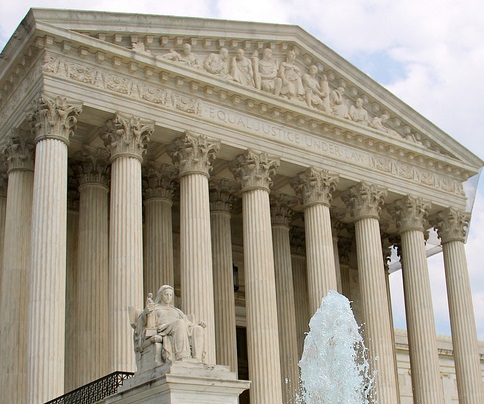Supremes: ‘Belief’ Not Defense Against Induced Infringement

The smarter way to stay on top of broadcasting and cable industry. Sign up below
You are now subscribed
Your newsletter sign-up was successful
In a decision that bears on the "patent troll" issue, the Supreme Court has ruled that a defendant’s good-faith belief that a patent is not valid is not a defense against induced infringement if that belief turns out to be wrong.
The case involved Cisco Wi-Fi networks and Commil USA, which asserted that Cisco had infringed Commil's patent and induced others—the folks who bought and used the equipment—to infringe as well.
Cisco was found liable in lower courts for both direct infringement and induced infringement. Cisco defended the inducement charge by saying it had a "good faith" belief that Commil's patent was invalid, but a district court found that inadmissible. A federal appeals court ruled that the trial court had erred in excluding that argument, but the Supreme Court decided that a defendant's belief is not sufficient.
The court made it clear that lower courts have "the authority and responsibility to ensure that frivolous cases—brought by companies using patents as a sword to go after defendants for money—are dissuaded." Those are the so-called patent trolls Congress is currently trying to crack down on through legislation, though the court said there had been no suggestion Commil's claim in this case was frivolous.
But the court said there were sanctions for attorneys and ways for those accused of inducing to establish the validity of patents and that a belief defense would undermine the statutory presumption of a patent's validity. The majority said that belief might be a defense against liability, but not against infringement.
The decision was 6 to 2, with Justice Stephen Breyer not participating—they do not have to say why they recuse themselves—and Chief Justice John Roberts and Justice Antonin Scalia dissenting from the finding that good faith belief is not a defense.
Scalia, who penned the dissent, said: "[I]t is impossible for anyone who believes that a patent cannot be infringed to induce actions that he knows will infringe it. A good-faith belief that a patent is invalid is therefore a defense to induced infringement of that patent."
The smarter way to stay on top of broadcasting and cable industry. Sign up below
Contributing editor John Eggerton has been an editor and/or writer on media regulation, legislation and policy for over four decades, including covering the FCC, FTC, Congress, the major media trade associations, and the federal courts. In addition to Multichannel News and Broadcasting + Cable, his work has appeared in Radio World, TV Technology, TV Fax, This Week in Consumer Electronics, Variety and the Encyclopedia Britannica.

